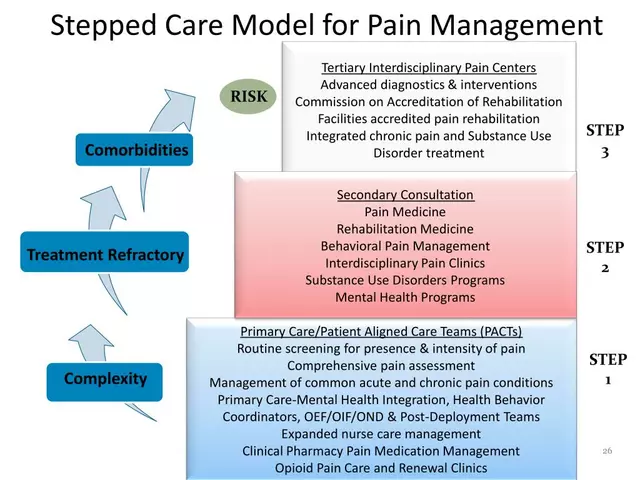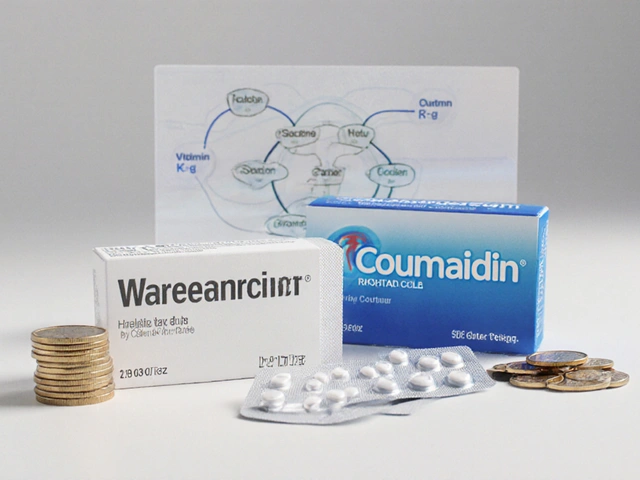Finding the right medication for treating herpes infections can be a crucial step toward managing your health effectively. While Valtrex has been a popular choice, the pharmaceutical world offers several alternatives that may cater to different needs and preferences. Let's explore five promising alternatives in 2024 that stand out for their unique qualities and benefits.
Acyclovir
When considering alternatives to Valtrex, Acyclovir often emerges as a widely recognized and used option. As an antiviral medication, Acyclovir has a long-standing history in managing herpes infections, providing relief to countless patients around the world. Its primary function is targeting the replication process of the herpes virus, affecting viruses such as HSV-1, HSV-2, and shingles. This capability makes it invaluable for addressing both genital herpes and cold sores, offering multiple formulations to suit individual preferences—from tablets to topical creams and ointments, each designed for specific needs.
Acyclovir's effectiveness lies in its ability to disrupt the viral DNA's synthesis process, halting the spread and progression of outbreaks. This method of action has been extensively studied, confirming its place in the therapeutic arsenal against herpes. However, its therapeutic strength is a trade-off with its bioavailability. Unlike the more advanced valacyclovir, Acyclovir requires more frequent dosing, typically taken several times a day to maintain adequate levels in the bloodstream. This aspect can be viewed as both a minor inconvenience and a testament to its steadfast efficacy. Despite its robust profile, like any medication, Acyclovir is not without its side effects, which may include nausea, headache, or, in some cases, abdominal discomfort. These occurrences are generally rare and often mild, but monitoring is advised, especially when initiating treatment.
Pros
- Effective against HSV-1, HSV-2, and shingles.
- Available in various formulations, including tablets and creams.
- Widely used and extensively studied.
Cons
- Lower bioavailability compared to valacyclovir.
- Requires more frequent dosing to maintain effectiveness.
- Potential side effects such as nausea and headaches.
Recent advancements in pharmaceutical technology continue to enhance the understanding and applications of Acyclovir. Studies consistently demonstrate its suitability for individuals initiating treatment for herpes infections, with adjustments possible as needs evolve. It's crucial to note that while some might prefer the ease of dosing provided by newer alternatives, Acyclovir's reputation stands the test of time. The World Health Organization continues to list Acyclovir among its essential medicines, underlining its critical role in global health strategies addressing viral infections.
"Acyclovir remains a cornerstone in the management of herpes, proving indispensable in diverse clinical settings." — Mayo Clinic Proceedings.Notably, its versatility and accessibility have secured its spot as a staple in both primary care and specialized medical practices, highlighting its enduring impact on patient care worldwide.
Famciclovir
Famciclovir has carved out its niche as a reliable Valtrex alternative, especially for treating herpes infections like shingles and genital herpes. Unlike some antiviral agents that struggle with oral bioavailability, famciclovir stands out with its high absorption rate, ensuring the active ingredients reach the bloodstream efficiently. This characteristic makes it particularly beneficial for those seeking a consistent and effective treatment option.
One of its primary strengths lies in its ability to convert into penciclovir within the body, which is more apt at maintaining prolonged antiviral activity. Many patients appreciate that they don't need to schedule frequent doses throughout the day, thanks to its longer half-life. This convenience can translate into better adherence and thus more effective management of symptoms. It's interesting to note that in individuals with compromised immunity, famciclovir provides a viable solution as it works well in controlling outbreaks effectively and reduces the risk of complications.
"Famciclovir remains one of the top choices for tackling herpes infections, offering peace of mind to millions," says Dr. Caroline Waters, a renowned virologist.
Despite its advantageous profile, famciclovir does come with some considerations. While it's lauded for controlling shingles and genital herpes symptoms, it isn't the go-to choice for managing HSV-1 related outbreaks as often as acyclovir or valacyclovir. Side effects, although rare, can occur, with headaches and fatigue being the most commonly reported experiences. It's vital for individuals to discuss these with their healthcare providers to ensure a treatment plan that's both effective and tolerable.
Emphasizing the broader acceptance of famciclovir, it has garnered trust not only for its efficacy but also for the minimal adjustments required during its use. Patients dealing with varying severities of outbreaks have found that famciclovir offers a stable regimen that doesn't demand altering other aspects of their lifestyle significantly. Offering both practicality and functionality, it's no wonder famciclovir maintains a respected position in the realm of herpes treatment options in 2024.

Penciclovir
Penciclovir is an interesting option in the world of antiviral medications, especially when dealing with cold sores. It directly targets the herpes simplex virus, making it an effective choice for many. Its topical application method has garnered a lot of attention for ease of use, allowing it to be applied directly to the site of infection. This specificity in targeting infected areas can accelerate the healing process, reducing the duration and severity of outbreaks. Being available in cream form presents patients with the practicality of using it whenever they need, without the concerns of complex administration schedules that come with oral medications.
While its effectiveness as a topical treatment is well documented, Penciclovir's performance shines predominantly in treating cold sores rather than the broader spectrum of herpes-related conditions. That being said, literature also notes its involvement in some promising developments outside its usual scope. The drug exhibits less systemic effectiveness when compared to its oral counterpart, famciclovir, which could be seen as a limitation for those in need of comprehensive antiviral therapy. Interestingly, Penciclovir's working mechanism involves inhibiting viral DNA synthesis, making it a reliable pharmacological agent against herpes viruses and laying a foundation upon which further use could be explored.
Clinical trials have showcased Penciclovir's capacity to alleviate symptoms such as pain and inflammation associated with outbreaks. In fact, a study published by the American Academy of Dermatology highlighted its potential:
Penciclovir cream has been shown to reduce pain by one day and overall lesion healing by approximately half a day compared to placebo in trials.This data underpins its standing as a viable contender in the fight against the uncomfortable symptoms that accompany herpes labialis. For patients regularly battling cold sores, this could offer some tangible relief and contribute to better day-to-day well-being.
However, like many medications, Penciclovir isn't without its limitations. Its bioavailability when taken orally leaves much to be desired, which is why its function as a prodrug, Famciclovir, gains more preference for systemic treatment. The topical form fits into a niche market, primarily catering to the needs of those struggling with labial infections. Given its specificity, one might find a longer period of suppression more achievable with other systemic treatments. The efficacy of topical Penciclovir is largely dependent on early application, making timely access and awareness crucial for patients looking to benefit most effectively from this treatment approach.
One of the appeals of Penciclovir is its placement within a well-researched class of medications. The dermatology field values its contribution, primarily due to its proven safety profile and minimal side effects. Individuals who experience frequent cold sore outbreaks potentially benefit from having an option that involves direct action without the systemic side effects that often accompany oral therapies. This adds a layer of comfort and control for those dealing with social and psychological impacts of visible herpes symptoms.
Docosanol
In the realm of cold sore treatments, Docosanol emerges as a non-prescription option that many find convenient and effective. Often found in creams like Abreva, Docosanol offers relief by halting the herpes simplex virus from invading healthy skin cells. This antiviral cream is applied topically, directly targeting the troublesome cold sores. One of its key benefits is that it’s available over the counter, meaning no doctor's visit is necessary. For those experiencing the onset of a cold sore, swiftly applying Docosanol can reduce the duration and severity of an outbreak. This immediacy makes it a popular choice among individuals who want a straightforward solution.
Docosanol’s user-friendly nature isn’t its only appeal. It's known for having minimal side effects, which is a significant consideration for many users. Those sensitive to traditional antiviral medications might prefer it, as it rarely causes any noticeable adverse reactions. However, it's essential to understand that while Docosanol is effective for cold sores, its reach doesn’t extend to genital herpes or shingles, where other antiviral treatments take precedence. As with any treatment, application frequency is crucial. For maximum effect, it should be applied at the first sign of a cold sore, up to five times a day.
"When using over-the-counter remedies, regular application and attention to instruction details make all the difference," commented Dr. Sarah Latimer, a dermatologist, emphasizing the importance of adherence to treatment guidelines.Including such expert advice can shed light on the importance of consistency in treatment, highlighting why some users might not achieve optimal results.
The developments in dermatological treatments have also highlighted the importance of recognizing how lifestyle factors play a role in managing cold sores. Stress, sunlight, and a weakened immune system can contribute to outbreaks, making a holistic approach to management necessary. Here is where Docosanol fits smoothly—it’s effective as part of an integrated care routine. Although sometimes perceived as only a reactive measure, informed users can appreciate its proactive potential when used correctly. By combining topical application with stress management and protective habits, it becomes an invaluable tool in a user’s anti-herpes arsenal. The ease of access and application enhances its attractiveness but also calls for informed consultation, especially if sores are frequent or unusually severe.
Statistics show that approximately one in five adults regularly suffer from cold sores, indicating a broad market for products like Docosanol. The prevalence suggests a necessity for readily available treatments that can be incorporated into daily life without disruption. This medication answers that demand by providing rapid relief and convenience. While many medications can overwhelm with intense effects or side effects, Docosanol remains gentle on the skin, enriching its appeal to those who might shy away from harsher treatments. It allows users to carry on with their daily lives with minimal interruption, a quality sought after in our fast-paced world.
To summarize, Docosanol represents a practical, user-friendly alternative when dealing with cold sores. Its efficacy, ease of use, and minimal side effects make it a standout choice in the non-prescription market. While it offers substantial relief and prevention for cold sores, its limitation to just that highlights the importance of recognizing different treatment needs. Users should consider it as a part of a more extensive care routine, ensuring they address all factors contributing to outbreaks. It's a reminder that accessible solutions don’t just provide convenience but also empower individuals in managing their health independently and effectively.

Lidocaine
Lidocaine stands out as a compelling option for individuals seeking relief from the discomfort associated with herpes outbreaks. This local anesthetic is renowned for its ability to quickly relieve pain without the need for systemic medication. Unlike traditional antiviral treatments that target the herpes virus, Lidocaine primarily addresses the symptoms by numbing the affected area. Available in various forms such as creams and patches, it provides flexibility for users who might prefer one method of application over another. Ease of use makes it an attractive option too; just apply a small amount of the cream or patch to the affected area, and the numbing effect begins shortly after. People who frequently suffer from herpes outbreaks often seek Lidocaine for its immediate impact on easing their daily discomfort.
While Lidocaine efficiently provides symptomatic relief, some users may question whether it resolves the underlying issue. However, Lidocaine’s role is clearly defined: to alleviate pain so patients can return to normal activities without the continuous reminder of their condition. Now, this aspect can be both positive and limiting, depending on individual expectations and treatment goals. For many, having a solution that temporarily alleviates the intense pain can be life-changing. Dr. Lisa Convey, a dermatologist noted for her work in herpes management, mentions, "When you're caught in the cycle of outbreaks, finding instant relief can mean the difference between a day lost to pain and a day salvaged for living your life." Using Lidocaine doesn’t eliminate the virus, but addressing pain with targeted, topical applications can be valuable in a comprehensive treatment plan.
A notable advantage of employing Lidocaine in a treatment regimen is its compatibility with other medications. It is often used alongside antiviral drugs like Acyclovir or Valtrex, providing a dual approach: one that attacks the virus itself and one that combats the discomfort caused by outbreaks. Still, as with any medication, Lidocaine isn't without possible side effects. Some individuals experience mild irritation at the application site or a burning sensation shortly after use. These side effects, while generally temporary, should be considered when discussing treatment options with healthcare providers. It’s crucial for patients to weigh these potential drawbacks against the substantial pain relief that Lidocaine offers. Indeed, its role can be particularly significant for those experiencing frequent outbreaks or who find antiviral drugs inadequate for pain management.
Understanding the different forms of Lidocaine available can help users make informed choices about their treatment. Creams provide a more direct method of application, allowing precise control over the affected area. Patches, on the other hand, offer convenience by adhering to the skin for extended periods, often up to twelve hours. This long-lasting effect can be beneficial for those with active lifestyles or who seek uninterrupted pain relief throughout the day. Whether as a solo treatment for pain alleviation or a complementary therapy in a more comprehensive antiviral regimen, Lidocaine represents a valuable tool for managing the challenges posed by herpes outbreaks. Always consult with a healthcare professional to determine the best course of action.
Conclusion
Navigating the landscape of herpes treatment in 2024 reveals a myriad of options beyond the familiar Valtrex alternatives. Each of these alternatives, whether it's Acyclovir with its widespread use and varying formulations, or Famciclovir lauded for its high oral bioavailability, offers unique advantages tailored to diverse needs. Our journey through these choices underscores how advances in antiviral medications continue to expand patient options, potentially enhancing both quality of treatment and life.
Famciclovir exhibits remarkable versatility by being suitable for individuals with compromised immune systems, a fact that speaks volumes about its adaptability. On the other hand, Penciclovir showcases its strengths predominantly in topical applications for cold sores, standing as an immediate defense against outbreaks. Interestingly, novel entries like Docosanol break the norm by requiring no prescription, allowing quick access during unexpected flare-ups. And for those seeking instant relief from pain rather than virus suppression, Lidocaine steps in as a calmative fix, showing us the value of symptomatic relief in the broader context of treatment.
Dr. Sandra McLellan, a leading expert in viral therapeutics, noted, "The evolution in herpes treatments is significant as it reflects our continuing commitment to enhancing patient care beyond the traditional options. New formulations and combinations are becoming accessible, and understanding these options is key to effective management."
Choosing from these alternatives allows patients and healthcare providers to craft personalized plans catering to individual experiences and health profiles. When deciding between such varied treatments, one must contemplate factors like bioavailability, side effects, and the specifics of the herpes infection being addressed. The tableau below provides a comparative glance at the distinctive benefits each alternative brings to the table, essentially illuminating the attributes that could resonate most with individual needs:
| Alternative | Primary Use | Pros | Cons |
|---|---|---|---|
| Acyclovir | General herpes infections | Effective across multiple strains, versatile forms | Lower bioavailability |
| Famciclovir | Shingles and genital herpes | High bioavailability, immune-complex use | Less prescribed for HSV-1, HSV-2 |
| Penciclovir | Cold sores | Topical effectiveness | Poor oral bioavailability |
| Docosanol | Cold sores | Non-prescription, ease of use | Limited to mild cases |
| Lidocaine | Pain relief in outbreaks | Quick symptomatic relief | Does not treat virus |
Understanding the intersection of medical science and patient lifestyle is vital for anyone tackling herpes infections. Embracing these alternatives doesn't just mean adjusting to new medications but also introducing a realm of convenience, efficacy, and personalized care into your health regimen. Ultimately, by assessing the nuances offered by each option, patients can make empowered, informed decisions, transforming the treatment experience into one of proactivity and better outcomes.






Terry Moreland
October 22, 2024 at 19:24
Valtrex is great, but it's good to know the alternatives.